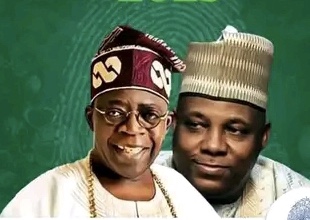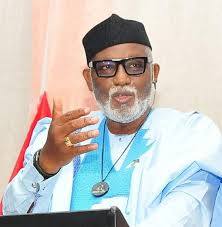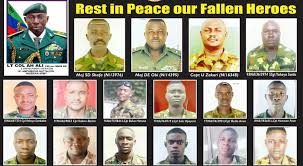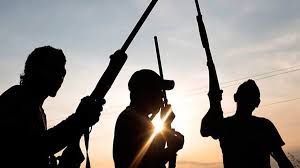Muslim-Christian Tickets: How relevant is the debate to Nigerian Socio-Economic progress?

Muslim-Christian Tickets: How relevant is the debate to Nigerian Socio-Economic progress?
By Jiti Ogunye
He argues that Nigerians place greater emphasis on economic, social dividends and progress than the faith of the elected.
ByJiti Ogunye
It is quite astonishing how the critical issues of socio-economic justice are being banished to the background in this leadership renewal debate and emotive issues are being pushed to the foreground. Shouldn’t the country, including our religious groups and denominations, rather engage in the fight for gender justice in our “representative democracy” and political system, to bring about a male-female/female-male ticket, across the board, as an immediate affirmative action, instead of crusading for a Christian-Muslim/Muslim-Christian ticket?
In liberal democratic elections, the ideology of political parties, including their programmes, manifestoes, platforms (containing social services, welfare issues and interests of the working class), and sensitivity to diversity, including the issue of gender justice, are the critical, ideal factors that should guide the choice of voters. The religious identity of candidates in a secular state like Nigeria should not be an overriding factor.
In Nigeria, a political party is not an ecumenical gathering or an interfaith amalgam. A political party system is the vehicle that drives governance of the affairs of men and society; not an ark that sails the righteous to the heavenly shore. The church, the mosque and the shrine must be kept separate from the affairs of the State; that is a neutral state.
The choice of a vice presidential candidate in the All Progressives Congress (APC) is generating a loud debate on whether that choice is sensitive to and respectful of the Christian faith.
We presume this debate has become urgent for many in view of the reality of religious intolerance and fanaticism in Nigeria. Since 2009, groups of Islamists and jihadists, known as Boko Haram and the Islamic State in West Africa Province (ISWAP) terrorists (that many Muslims have rightly condemned and denounced as not being true Muslims), have been waging a war against the Nigerian state with the declared goal of carving a theocratic Islamic state out of it.
For us, unless there is clear evidence or strong inferences that the said choice is meant to foster Islam as a state religion in Nigeria, promote political Islam and empower Boko Haram and ISWAP in such a way as to deny, abuse and abridge the enjoyment or religious rights and liberties, this loud debate is not important. The debate on the Muslim-Muslim ticket, we opine, should not be conducted in a ramifying and Islamophobic manner, as if the ticket, a free exercise of democratic right, is an extension of the murderous Boko Haram and ISWAP’s theocratic campaigns.
The important issue is whether the political party that has put together this Muslim-Muslim ticket is deserving of renewal of the presidential mandate that it currently holds, and whether the joint ticket-holders have the qualifications, character, class interests, competence, fitness, capacity and integrity to lead Nigeria at this time.
In 1979, the Christian-Christian ticket of Chief Obafemi Awolowo and his Unity Party of Nigeria (UPN), under which Chief Philip Umeadi was fielded as a vice-presidential candidate, on the platform of the then newly adopted presidential system of government (in departure from the parliamentary system of the First Republic) was a no issue. In the Yoruba West, Awolowo secured votes across faith lines. The integrity of that Christian-Christian ticket was, in a way, litigated and validated in the election petition case of Awolowo v Shagari, up to the Supreme Court of Nigeria. The big issue in that ticket, by a way of recall, was whether Chief Obafemi Awolowo was trustworthy and electable by the Igbo electorate, and whether he did not hate the Igbo, given the roles he placed especially during the unfortunate civil war between 1967 and 1970, when he did not only serve as the war-time minister of Finance but also as the vice chairman of the Federal Executive Council under the Federal Military Government of General Yakubu Gowon, during the civil war.
In 1993, the Muslim-Muslim ticket of Chief MKO Abiola’s Social Democratic Party (SDP) was not a big issue. Abiola attended a Christian institution, the Baptist High School, Abeokuta, where, although a Muslim, he compulsorily participated in Christian religious activities; learnt and indeed could sing Christian hymns. The fact that his joint presidential ticket was a Muslim-Muslim one was not a big deal; the real issue then was the need to “democratically and electorally” sack from stolen political power, a cunning military dictatorship, unwilling to vacate the military presidency, and thus perpetually manipulating the transition to civil rule programme.
Added to that burning issue was a pan-Nigerian, inter-faith unity to bring about an organic rotation of presidential power in Nigeria. Undeniably, across Southern Nigeria, there was an inter-ethnic and inter-faith solidarity to equally cause a “power shift” to the South and put an end to the political power hegemony of the Northern wing of the ruling class, represented then by a gang of military plutocrats, mainly of northern extraction, and their collaborating civilian bureaucrats.
It was that putative consensus on power-shift, truncated by the annulment of the June 12 election and the Abacha reign of terror that followed, that made the Nigerian ruling class seek vindication arranging for two Southerners to contest the presidential election in 1999, with the predictable outcome that, invariably, a Southerner would emerge the president of Nigeria.
The Abiola/SDP Muslim-Muslim ticket was a faith uniting one, not a faith-dividing ticket. Many Nigerians of different faiths were persecuted (imprisoned, exiled or killed) for fighting for the actualisation of the mandate that emanated from that Muslim-Muslim ticket. Many who fought and those who were killed while fighting, were not fighting for their religious beliefs or faiths when doing so. They were fighting (and for those who were slain or had died) for electoral and political justice to be done in the country.
A foremost patriot and celebrated atheist, Dr Tai Solarin, who repeatedly said he never believed in the existence of God, fought hard for the actualisation of that mandate, physically participating in the Campaign for Democracy-organised nationwide protests that greeted the annulment of the election, on July 5-7, 1993, leading a column of protesters from Ikene, his domicile in Ogun State, to Ikeja, Lagos.
We submit that religious identity or diversity, sect affiliation or denominational association was never intended to be the constitutionally prescribed plank for bringing that unity or inclusion about. The focus was to attempt to grow national unity and democratic government from our ethnically diverse communities. The goal was to prevent ethnic domination, subjugation or emasculation.
The Nigerian Constitution decrees no state religion, although the Nigerian state, immorally and unlawfully, has been using state funds and other resources to promote the hegemony and dominance of the two Abrahamic religions – Islam and Christianity. This is in spite of the fact that the Constitution clearly recognises Nigeria as a secular or multi-religious state.
While it is true that in the Preamble to the Constitution of the Federal Republic of Nigeria, 1999, it is stated that the Constitution is made for the “purpose of promoting the good government and welfare of all persons in our country on the principles of Freedom, Equality, and Justice, and for the purpose of consolidating the Unity of our people”, it is submitted that this declared purpose, in constitutional theory, is achieved by the constitutional guarantees (freedoms) referenced below and the federal character principles etched on the pages of our Constitution.
We admit, though, that as it is the case in all spheres of our national life, there is a wide chasm between theory and practice on the issue of fostering these noble constitutional ideals.
Section 14(1) of the Constitution declares that, “the Federal Republic of Nigeria shall be a State based on the principles of democracy and social justice”, and the document further declares in Section 14 (3&4) that the composition of government in the Federation and in the States and Local Government Councils or any of their agencies; and the conduct of their affairs shall be carried out in such a manner as to reflect the federal character of Nigeria and the need to promote national unity, and also to command national loyalty, thereby ensuring that there shall be no predominance of persons from a few States or from a few ethnic or other sectional groups in that Government or in any of its agencies (and for the Government of a State or Local Government Council), the conduct of their affairs shall be carried out in such manner as to recognise the diversity of the people within its area of authority and the need to promote a sense of belonging and loyalty among all the peoples of the Federation.
ⓘ
It is crystal clear that the imagination and intendment of the framers of the cited provision is to foster unity amongst peoples, states, ethnic groups and such other sectional groups, and bring about their inclusion in government at all levels.
We submit that religious identity or diversity, sect affiliation or denominational association was never intended to be the constitutionally prescribed plank for bringing that unity or inclusion about. The focus was to attempt to grow national unity and democratic government from our ethnically diverse communities. The goal was to prevent ethnic domination, subjugation or emasculation.
Section 15(2) of the Constitution states that “national integration shall be actively encouraged, whilst discrimination on the grounds of place of origin, sex, religion, status, ethnic or linguistic association or ties shall be prohibited.”
We submit that while the goal of Section 15(2) is ostensibly to promote national integration, including religious harmony, still on the ground of that same Section 15(2), rejecting a Muslim-Muslim or a Christian-Christian presidential ticket, solely on the ground of religious differences, is discriminatory of the candidates, running foul of the non-justiciable prohibition of such discrimination.
The federal character principles in our Constitution are further strengthened by the establishment of the Federal Character Commission under Section 153 (1) of the Constitution, and a specific codification of the Federal Character Commission Act to enable the Commission discharge its mandate. The principles also are further strengthened by provisions like Section 147(3) and Section 192(2) of the Constitution, which respectively obligates the president and the governor to comply with the federal character provision in Section 14(3&4) of the Constitution in their appointment of ministers in the government of the federation, and commissioners in the government of a state.
In appointing ministers and commissioners, the Federal Character Principles stipulate that the ministers must be sourced from all the states in the federation, and the commissioners from the local government areas in a state. The religious background or beliefs of the appointees is not a constitutional requirement; nor is balance or equality of religious or faith representation in the Executive Council, of the federation or in the states, between the two religions or amongst all the faiths practiced in the country or state a constitutional mandate.
It is very instructive that in the prescribed qualification for the office of president under Section 137 of the Constitution, and in the prescribed qualification for the office of governor under Section 182 of the Constitution, the faith or religion practiced is not an eligibility requirement for an aspirant or a candidate, vying for a presidential or gubernatorial seat.
And it is also instructive to note that upon being elected on a Christian-Christian ticket, a Muslim-Muslim ticket or an atheist-atheist ticket, it is permissible under the law for a president-elect and/or a vice-president elect to decline to be sworn on the Holy Bible or the Holy Koran, and for him/her to take the right under the law to be sworn on affirmation, by raising his hand and affirming, without placing same on any Holy Book (see the Seventh Schedule to the Constitution for the Oath of Allegiance and Oath of Offices; also see Section 205 of the Evidence Act, 2011 ; and Section five, seven and eight of the Oaths Act, which make provisions for “forms and manner in which oath may be taken; absence of religious belief; and affirmations”. Under the provisions, affirmations and declarations may be made, without swearing or referencing God at the end of the oath).
Faith, religion and spiritual matters are very important to man. But they are not the critical and major determinants of man’s socio-economic existence in temporal terms. There are, at any given time, many identities: social, economic, political, religious, group, professional, ethnic, national, international (country), gender, age-group, and class. A religious identity is not foundational in social relations. We affirm, class identity is.
Section 38 of the Constitution of the Federal Republic of Nigeria guarantees the right to freedom of thought, conscience and religion. And Section 42 guarantees the right to freedom from discrimination on account of community, ethnic, group, place of origin, sex or religious identity, or political opinion.
A combined application and effect of the two above cited constitutional (human rights) guarantees would mean that an atheist or a polytheist (for example an African indigenous religion believer) may contest for the presidency of Nigeria with the constitutional assurance that he shall not be discriminated against by voters on account of his non-belief in the existence of God or non-belief in monotheism. If such a scenario were to occur, it would be interesting to see whether the two main religions in Nigeria would, in defence of their beleaguered faiths, work in concert to shoot down the candidature of such a “pagan, idolator or satanic instrument”!
Faith, religion and spiritual matters are very important to man. But they are not the critical and major determinants of man’s socio-economic existence in temporal terms. There are, at any given time, many identities: social, economic, political, religious, group, professional, ethnic, national, international (country), gender, age-group, and class. A religious identity is not foundational in social relations. We affirm, class identity is. Class identity largely determines how interests are advanced and protected, and who gets what in a class society. A practiced religion, therefore, should not be the overriding determinant of the qualification of any Nigerian to hold political office. And in our humble opinion, a forced religious balancing or pairing of political office seekers should not be an overriding determinant of eligibility or electability.
The critical question before Nigerians must be which of the presidential tickets thrown up by the current election cycle (presidential and vice-presidential candidates combined) is good enough (and not religious or “religiously twined” enough, “religiously balanced” being a misnomer, given the exclusion of the other faiths or non-faiths in the exclusionary and religiously arrogant equation) to govern Nigeria at the highest level, come May 2023.
It is quite astonishing how the critical issues of socio-economic justice are being banished to the background in this leadership renewal debate and emotive issues are being pushed to the foreground. Shouldn’t the country, including our religious groups and denominations, rather engage in the fight for gender justice in our “representative democracy” and political system, to bring about a male-female/female-male ticket, across the board, as an immediate affirmative action, instead of crusading for a Christian-Muslim/Muslim-Christian ticket? How does equal faith representation in government override the need for gender justice, for example?
For our fellow Christians in the North, who in many places are a religious minority, who may regard the presence of a Christian in a joint presidential ticket at any point in time a sin qua non, there are many options, including voting for candidates of other political parties, who have such “faith-balance”. Multi-party democracy guarantees freedom of electoral choice.
For the APC (whether the presidential ticket is Christian-Christian, Muslim-Muslim or atheist-atheist), the real question is, given the calamitous manner in which the government produced by the party has governed at the federal level, especially on its tripod cardinal promises of enhacing security, the economy and an anti-corruption regime, should it be rewarded with a fresh mandate? Does the party have any redemption potential left in it? If it does, why is the Muslim-Muslim ticket a barrier to its acceptability? If it does not, are the other “front-running” political parties, whose presidential and vice presidential candidates are tainted and contaminated parts of the Nigerian ruling (ruining) class, viable options? If any one of them is viable, why can’t the angry electorate embrace that alternative, not because of a Christian-Muslim or Muslim-Christian ticket, but because it is likely to provide a better leadership than another APC government? If none of them is a better alternative, as it is glaringly clear, can the Nigerian electorate search for their salvation elsewhere, by giving life to the other idealistic, fledgling political parties, earnestly asking for, and fervently praying for their support? What is to be done?
Chief Gani Fawehinmi (SAN, SAM), was one such giant of an idealist in 2003. With his National Conscience Party (NCP), he begged Nigerians, unsuccessfully, to embrace self-deliverance from oppression and liberation from the oppressive shackles and manacles of poverty. Alas, discounting the incidence of votes-rigging, which was rife in that year, the national conscience of Nigerians, largely, remained inactive!
The problem of governance in Nigeria, which the ruling class, election after election, has proven unable to solve is not insurmountable. It is not a problem to be solved only by the devout, spirit-filled, Holy Ghost fire-spitting, Holy Bible wielding, perennially-tithing, psalms-reading, night vigil-going, robe-wearing, and prayer mountain-visiting Christian; or a problem to be solved only by a devout, five prayers daily-observing, mosque-going, ever-fasting, Holy Quran-quoting, permanent Holy Pilgrimage-going, alms and ‘Zakat’-giving, hijab-donning, and ever rosary (tesbiu)-counting Muslim.
It is a problem to be solved by Nigerians of all faiths; or of no religious faith or belief at all.
Those who have brought our country to its sorry state on its crippled legs are “persons of faith” – Christians and Muslims. Unfortunately, many Nigerians are sanctimonious in their ungodliness and pietistical in their immoralities and perversity.
Nigeria needs leadership redefinition and reinvention. She does not need religion but redemption.




